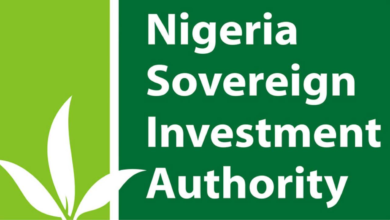Nigerian Stock Market Rally on Steroids, Analysts Struggling to Justify “BUY” Recommendations
By Wole Famurewa

An accommodative monetary stance designed to soften the impact of the Covid-19 pandemic on the Nigerian economy has sparked an unprecedented demand for stocks on the Nigerian Stock Exchange.
On November 12, the NSE All Share Index was up more than 5 percent, triggering an automatic intra-day trading halt for the first time since the NSE introduced a “circuit breaker” protocol to manage excessive volatility in 2016. The price rally and strong demand for stocks reflect the growing interest of retail and institutional investors in shares after the central bank’s monetary policy committee (MPC) announced a cut in its key rate at its last meeting in September.
The MPC’s move and other actions by the central bank have triggered further declines in yields on government securities. Yields on 91-day treasury bills have dropped to 0.3%, from 1.08% in September.
“Since the last MPC meeting, the central bank has been less willing to roll over maturing OMO treasury bills. In addition, the regular treasury bills issuance has not been very heavy,” a sales and trading analyst at a top Nigerian bank revealed. Treasury bills issuance is an important mechanism used by the central bank to regulate liquidity in the banking system. OMO treasury bills are issued to mop up excess liquidity, thereby influencing interest rates.
Also Read: Stock Markets Rise Around the World on Biden Win, Vaccine Breakthrough
Relatively high dividend yields and the prospect for capital appreciation from higher stock prices are motivating pension fund managers and other institutional investors to redirect liquidity to the stock market.
Prior to the recent rally, several analysts listed Zenith Bank and UBA among a few stocks that offered dividend yields close to 10 percent. Analysts also recommended stocks with impressive earnings growth despite the economic contraction that followed the Covid-19 pandemic. The prospects for high single-digit dividend yields were too hard to resist for fund managers who can now only get less than 2% yield today if they invest millions of naira in bank deposits or short-dated government securities.
However, given the recent rally in stock prices, some analysts are concerned that investors may now be too exuberant. The NSE All Share Index is up 33% since the end of September.
Also Read: Nigerian Stock Exchange Hosts Dangote Cement to Virtual Facts Behind the Figures
“The NSE All Share Index is currently 3 percentage points above its 3-year average price-earnings ratio. In addition, we are now seeing stocks of a loss-making company like UACN rising steadily,” said Philip Anegbe, Head of Research at Cardinal Stone Partners, who added that he thinks the market is clearly overvalued.
Nevertheless, the high liquidity and low yields in the money market that fueled the demand for stocks is likely to be sustained. “We anticipate even more liquidity to hit the system in the coming weeks, especially in December when N1.8 trillion invested in a range of treasury bills will mature,” said the analyst.
While the central bank’s approach to liquidity management will influence interest rates going forward, it is widely expected that the central bank will maintain its current stance towards interest rates in the short term.
Against this background, some analysts are currently struggling to justify “BUY” stock recommendations. “It’s tough to find cheap stocks right now. Seplat, Nestle, and Ardova are among a few stocks that still trading slightly below an assessment of their fair value,” Phillip Anegbe said. Regardless of the current rich valuations, the liquidity flowing from the fixed income market to the equity market could sustain the rally.








One Comment